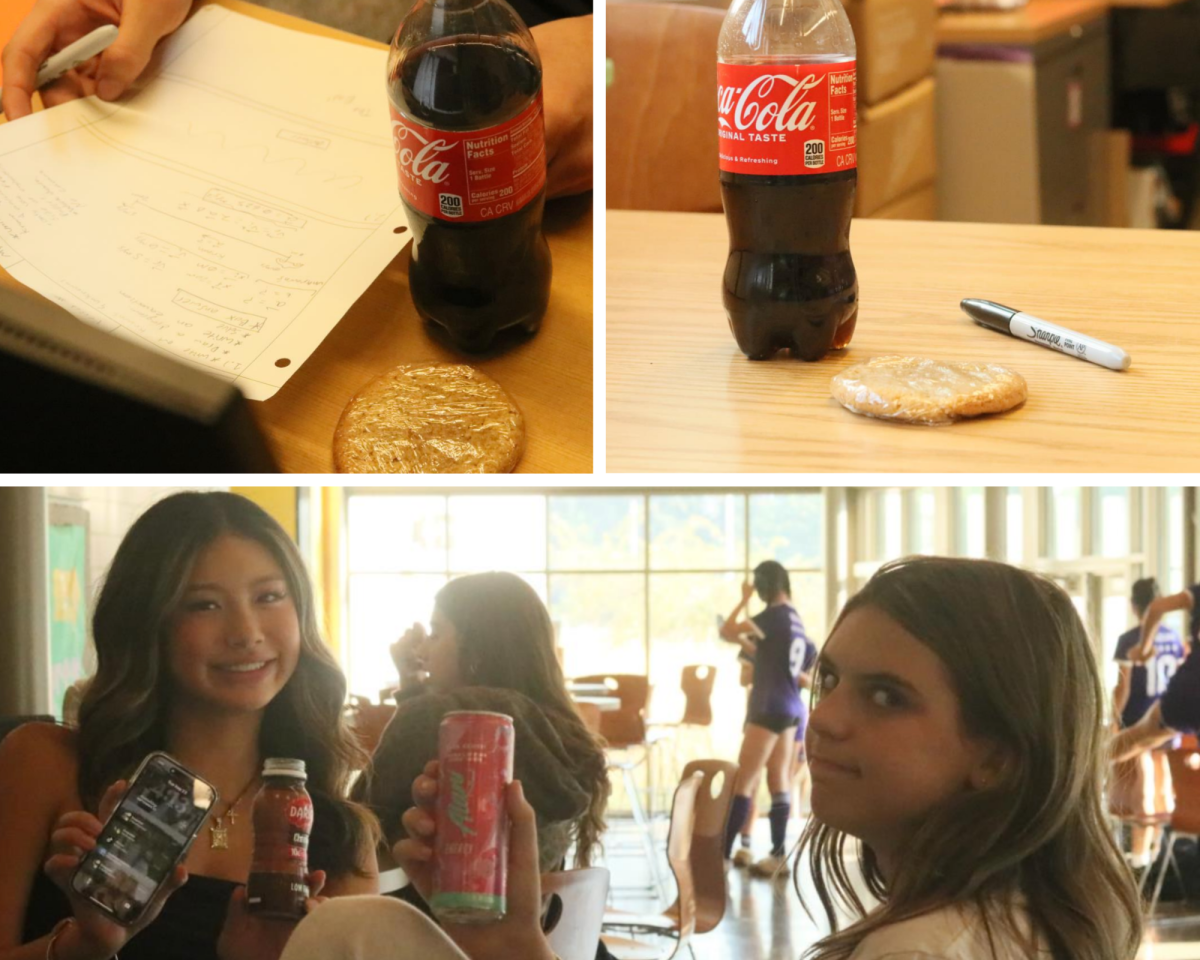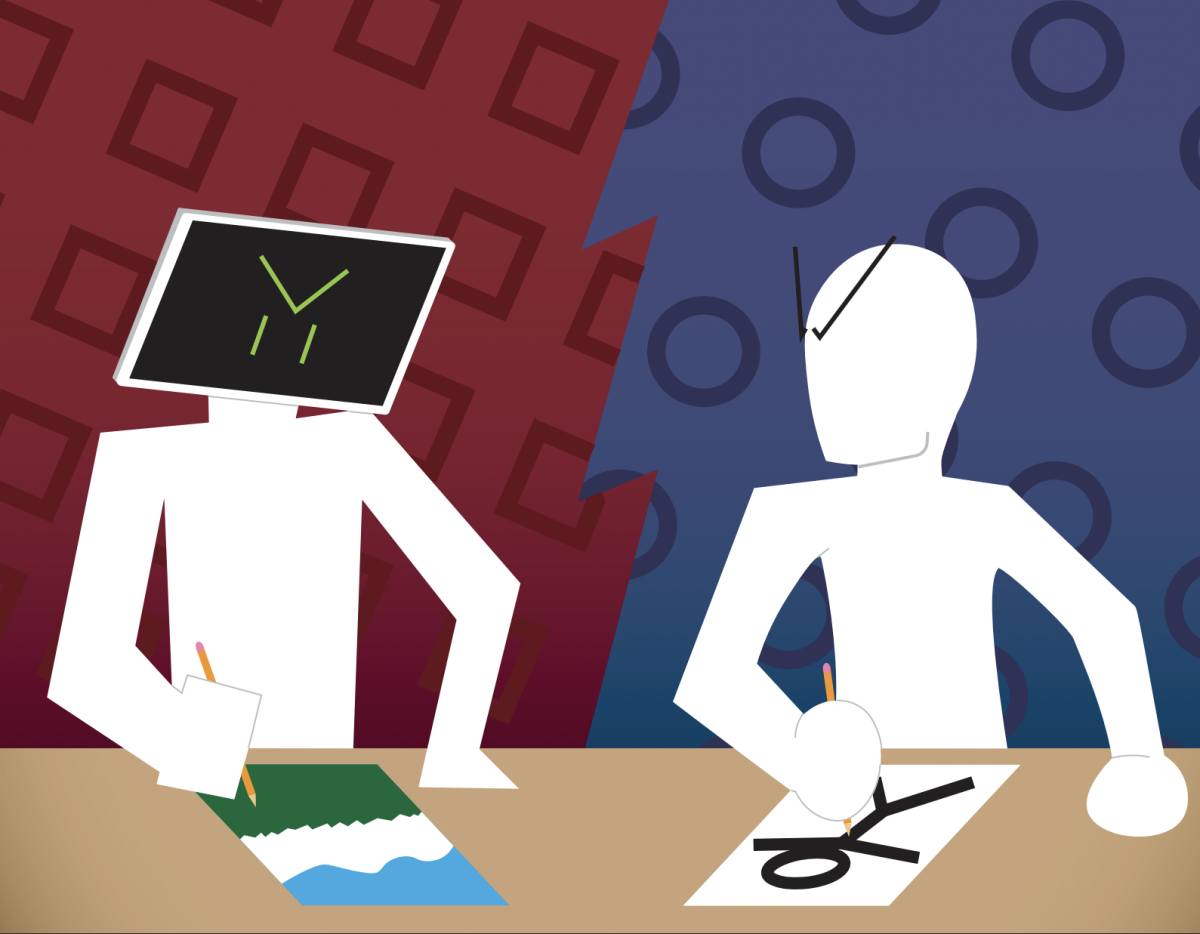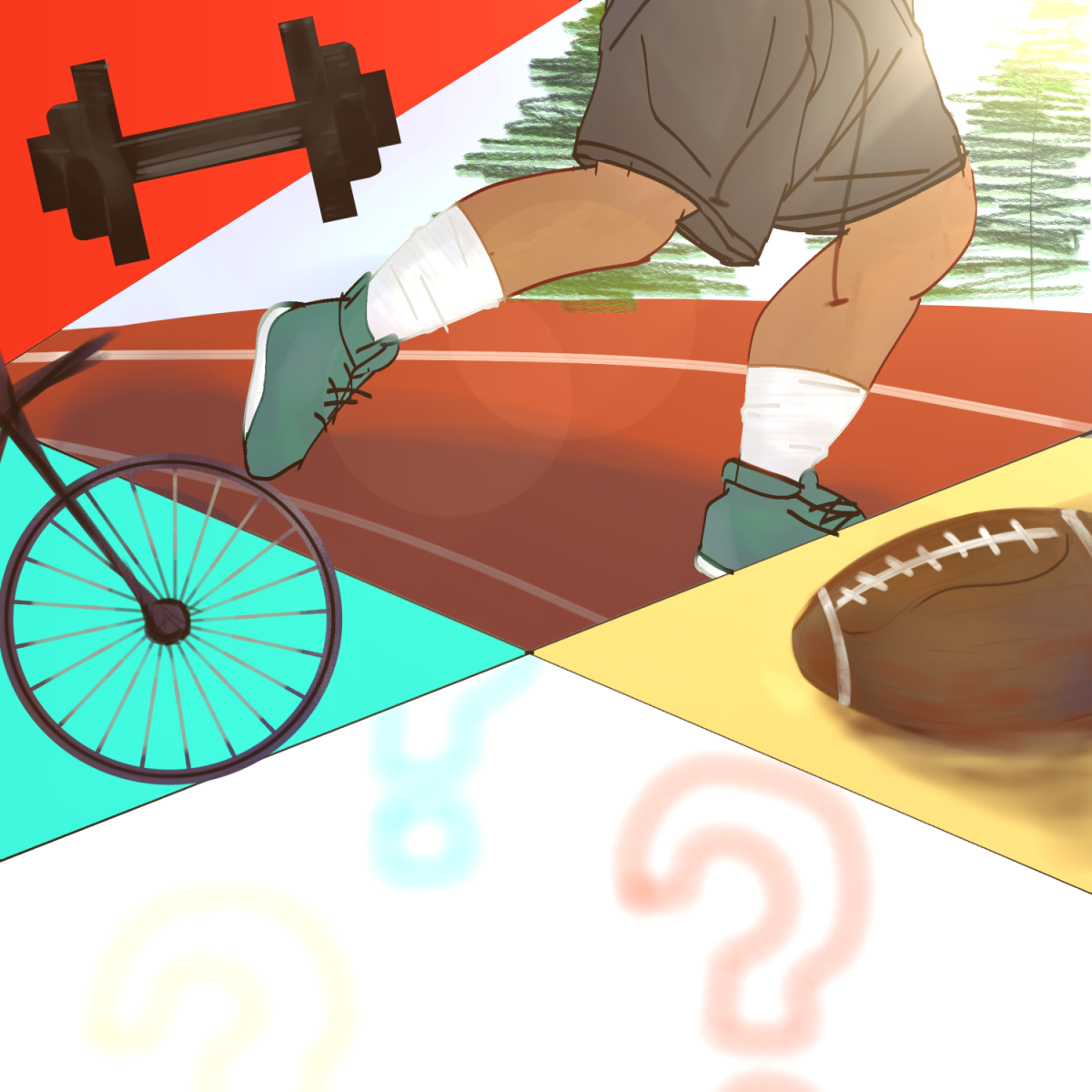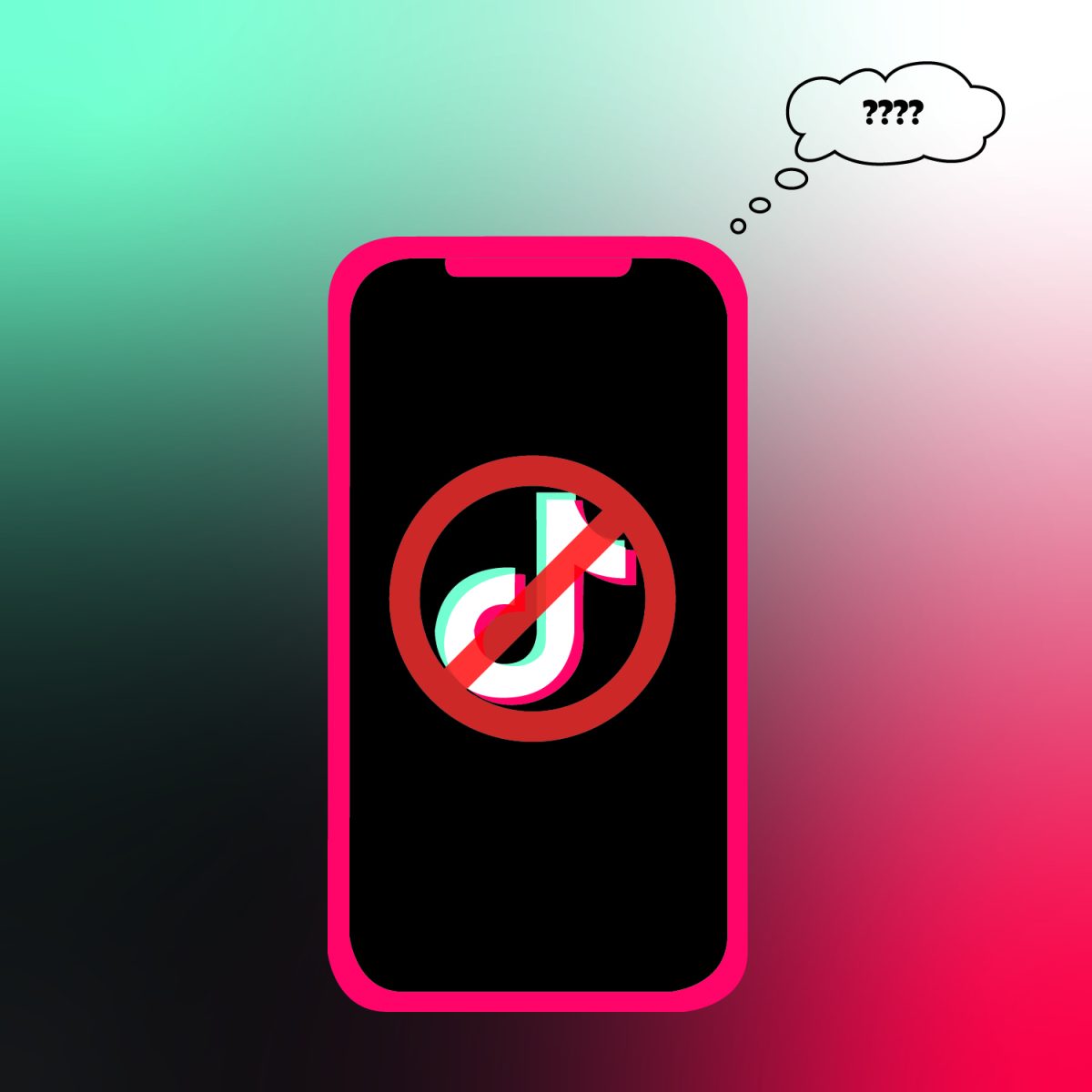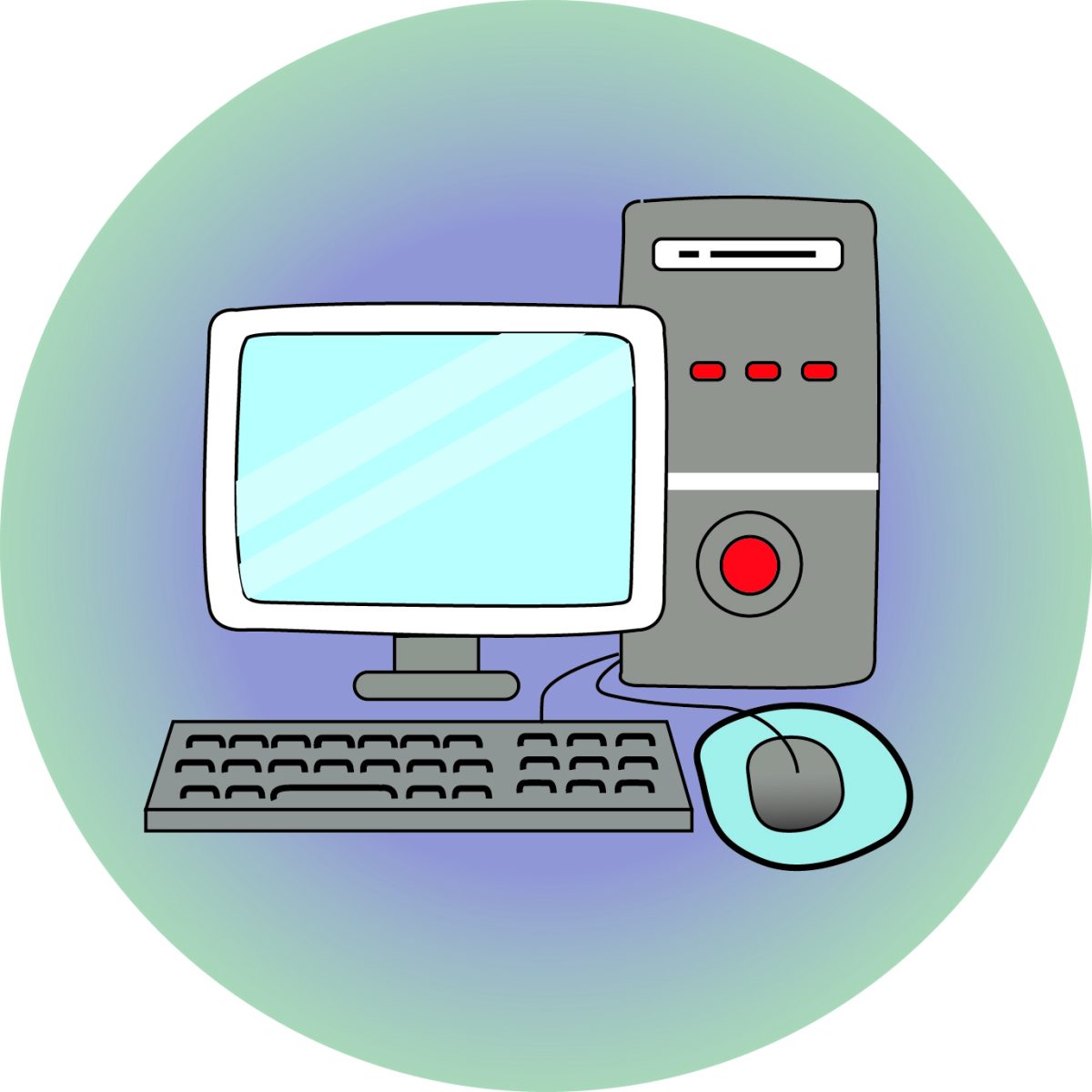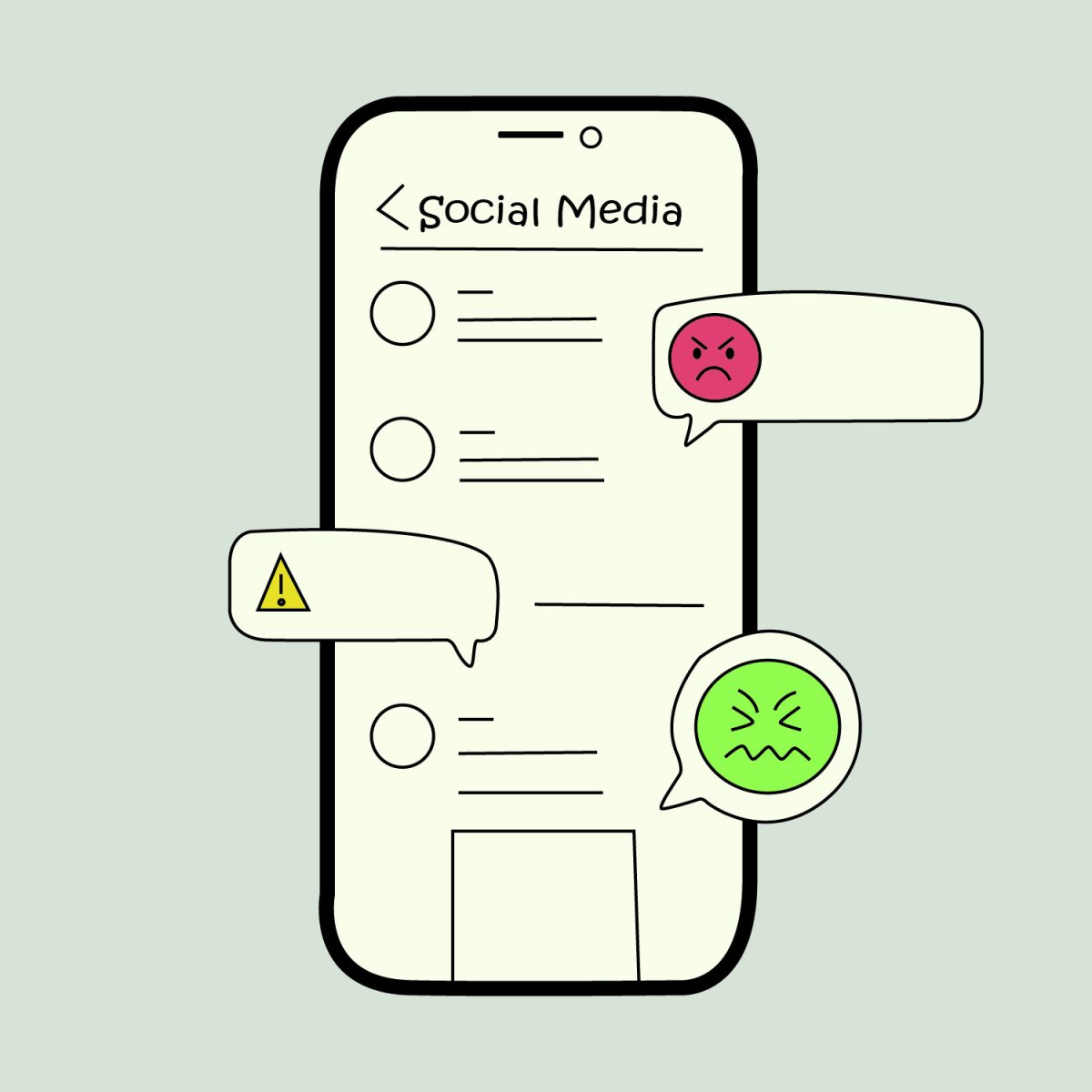Although most of us do not want to admit it, everyone has probably committed academic dishonesty at least once in their life. This might be crazy to comprehend, but it is true with how small acts like cheating can be. According to Northern Illinois University, “Academic dishonesty refers to committing or contributing to dishonest acts by those engaged in teaching, learning, research, and related academic activities, and it applies not just to students, but to everyone in the academic environment.” At school, we are constantly taught how bad being academically dishonest is, but sometimes, during drastic times, students think differently. Sophomore Aahana Dhwaj says, “Some students might just want a passing grade in that class and their goals and priorities must be a bit different than those who do not do academic dishonesty.”
When it comes to being academically dishonest, people think of the obvious, such as cheating or plagiarizing. Academic dishonesty comes in many forms such as cheating, plagiarism, sabotage, and fabrication/falsification. According to Nothern Illinois University, cheating is defined as when the unauthorized use of information, devices, or sources is used to complete academic activities. For example, copying off someone’s work during a test is considered cheating. Meanwhile, plagiarism is the adoption of someone else’s work, ideas, or products and passing it off as your own without any acknowledgement or citation of the original source. An example of plagiarism is copying and pasting content from the internet into your word document and not providing the necessary citation (or any citation for that matter). Fabrication or falsification is the unallowed making or changing of content for an academic activity. For example, fabrication/falsification can be when a student makes up a source for content use that does not exist. The final category for academic dishonesty is sabotage. Sabotage is when someone destroys or interrupts another’s work to prevent them from completing their academic task successfully. Two examples of this are destroying another’s artwork and failing to contribute to group projects. After realizing what counts as academic dishonesty, it should be simple to just avoid doing anything wrong. However, doing anything that counts as cheating or fabrication can happen more easily than realized. According to The University of Chicago, “It may be as simple as looking over a classmate’s shoulder during a quiz or as elaborate as hiring a ghostwriter online for a course paper, but whatever the method employed, academic dishonesty harms the learning experience and gives cheaters an unfair advantage over those who abide by the rules.” Cheating or committing any acts of academic dishonesty can happen even by accident when we do not even realize it such as doing half of the homework while your friend does the other half and you two share answers or just basing your essay off of what inspires you online.
Acts of academic dishonesty, such as plagiarism and fabrication, can be common in schools. However, they can be more often among students than what was thought to be believed. According to The National Library of Medicine, studies have found that 57.3 percent of post-secondary students in Canada have allowed another to copy off of their work and 61 percent of undergraduate students in Sweden have admitted to plagiarizing material for their homework from an unallowed source. In addition, 53percent students from four Australian universities and 36 percent from four German universities have reported collaborating with others on individual assignments and in some Polish universities, 59 percent of students said that they were cheating in their current classes and 83.7 percent said to have cheated at some point in college. Cheating rates in colleges are similar to those in high schools. Junior Presley Boettcher says, “I obviously see cheating a lot, but it comes in many ways. I guess I do see it often, but it is kind of copying more.” Whether we realize it or not, cheating and other forms of academic dishonesty are more common than what some of us might like to believe.
Committing academic dishonesty such as sabotage and fabrication/falsification might seem crazy and unprovoked in the eyes of some. However, every student has a reason for why they would cheat. Freshman Shaurya Behera says that some people might feel as though they need to cheat because a class might be too boring or too hard for the student. IHS history teacher Nico Hakes adds, “From family, school, or wanting to get into good schools like universities, students are pressured to be perfect. And instead of realizing that like they cannot be perfect and there are so many other things that go into it like being a student or being like a citizen, all of that pressure forces them to make these decisions that they decide that cheating is the most logical option, which I do not blame them. Everyone cheats at some point. But it is just the pressure, I think.” Although there are many factors to encourage academic dishonesty, some people wonder if morality ever affects the chances of a student plagiarizing. According to The University of Chicago, “Studies suggest that most students realize academic dishonesty is morally wrong, but various outside factors or pressures may serve as “neutralizers,” allowing students to suppress their feelings of guilt and justify their dishonest acts to themselves.” Academic dishonesty might seem wrong to students, but when they desperately feel as though they need help to get good grades, help their friends, or because they lack motivation, cheating or plagiarizing can seem very appealing.
Although academic dishonesty is caused by students and their feelings of desperation, there are ways for schools and teachers to decrease the chance of any of their students feeling the need to cheat or plagiarize. According to The University of Chicago, teachers and school facilities can manage and redesign courses and syllabi to display clear academic expectations, alter the set-up of assignments to reinforce originality and specificity, and use technology to monitor and regulate academic rules. Boettcher adds, “I am not sure how the system works. But I feel like they can compare an assignment with another student’s … I am not sure if they are already doing that, but one of my teachers said that she’s getting the assignment back and so many students’ words for word have been copying the exact answer to it, so she knows it has been going around too.” It can be up to the school or school district to decide how they want to tackle cheating issues in schools, but ultimately, it is up to the teachers and how they want to prevent academic dishonesty from occurring.
There are many ways students can also decrease the chances of participating in academic dishonesty. Since feelings of being unprepared, anxiety, and being peer pressured are common reasons for why a student might resort to actions like cheating or fabrication, it is important for students to realize that just studying more and getting more sleep can make them feel more confident in what they already know. Hakes says, “I do not think there is anything they can do. But, if there is a will, there is a way. When I was in high school, I never cheated, but if I were to have cheated in high school, there are ways to get around it.” California State University San Marcos (CSUSM) adds that some tips for academic success are to read through your course’s syllabus to understand the rules and regulations, get help if you need it instead of resorting to the internet, manage your time wisely to decrease any feelings of anxiety and worry, and to always focus on how to get to the end result rather than just the end result itself. Participating in academic dishonesty might seem necessary under certain circumstances, but if you can manage your time wisely and follow the steps to walk away from cheating or plagiarizing, the results will be much more worth it in the long run.
The truth of what academic dishonesty is and how it can affect your life in the long run is often overlooked during times of stress and pressure. However, if you can realize the impact cheating and sabotage can have on your life and on the life of others, it will be easier to step away from ever wanting to cheat.



